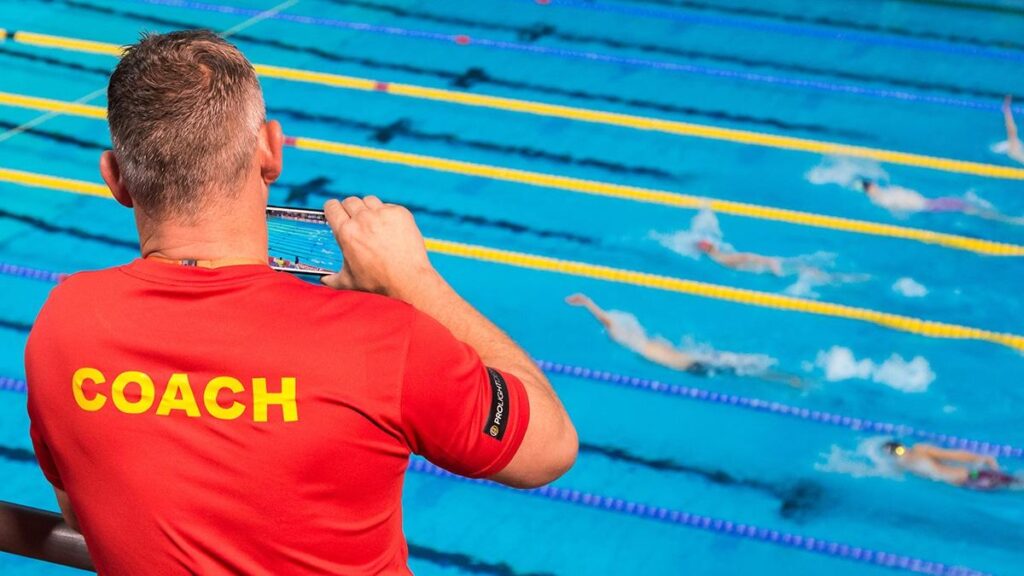In the often unseen depths of competitive swimming, coaches play a pivotal role far beyond instruction and technique. They shape athletes’ discipline, resilience, and passion, often demanding more than just physical effort. Today, as the sport continues to evolve and thrive, a heartfelt message emerges-“A Letter to Swim Coaches Everywhere: Thank You”-acknowledging the unwavering dedication and impact of these mentors. This letter not only expresses gratitude but also highlights the crucial influence swim coaches have in molding champions both in and out of the pool.
The Unsung Impact of Swim Coaches on Athlete Development
Behind every powerful stroke and every record-breaking swim lies a coach whose dedication often goes unnoticed. These mentors do far more than perfect technique-they cultivate resilience, mental toughness, and a deep love for the sport. Their guidance teaches athletes how to cope with setbacks, encouraging a mindset that transcends the pool and shapes character. By recognizing the subtle ways they mold champions-through early morning drills, strategic feedback, and unwavering encouragement-we truly understand their indispensable role in the journey.
- Emotional support: Coaches help athletes navigate pressure and competition nerves.
- Technical expertise: Precision coaching ensures stroke efficiency and injury prevention.
- Long-term vision: They set progressive goals, fostering sustained improvement.
| Coach’s Contribution | Impact on Athlete |
|---|---|
| Personalized training plans | Maximized individual potential |
| Culture building | Team cohesion and motivation |
| Real-time race analysis | Sharper competitive edge |
| Life skills mentorship | Confidence beyond swimming |
Cultivating Resilience and Confidence Through Coaching Excellence
Behind every stroke of progress in the pool lies the unwavering dedication of swim coaches who not only teach technique but also nurture the spirit of resilience. These mentors transform setbacks into stepping stones, instilling a mindset that champions persistence and self-belief. Through personalized feedback, encouragement, and strategic goal-setting, they empower athletes to face challenges head-on and emerge stronger with every lap. The ripple effect of this guidance reaches far beyond aquatic performance, shaping individuals ready to tackle life’s unpredictable currents.
Key factors contributing to this transformative journey include:
- Consistent Positive Reinforcement: Building self-confidence by recognizing effort as much as achievement.
- Adaptable Coaching Strategies: Tailoring approaches to fit the unique emotional and physical needs of each swimmer.
- Creating a Safe Environment: Encouraging athletes to embrace failure as a crucial part of growth.
- Fostering Team Cohesion: Promoting mutual support that strengthens individual resolve.
To illustrate the impact of coaching excellence, consider this brief outcome summary from a recent youth program:
| Metric | Before Coaching | After 6 Months |
|---|---|---|
| Confidence in Competitions | 45% | 85% |
| Resilience Score | 3.2 / 5 | 4.6 / 5 |
| Dropout Rate | 30% | 7% |
The data speaks volumes about how investing in coaching excellence catalyzes profound development-proving these mentors are not just teachers of swimming but architects of enduring strength and confidence.
Strategies for Enhancing Communication and Support in Swim Training
Effective communication serves as the backbone of any successful swim program. Coaches who prioritize clear, consistent messaging not only streamline training objectives but also foster an environment where athletes feel heard and valued. Utilizing varied communication methods-ranging from brief daily check-ins to detailed video analysis feedback-ensures swimmers of all levels grasp their goals and progress. Moreover, encouraging open dialogue helps identify individual challenges early, allowing coaches to tailor support strategies that enhance performance and maintain motivation throughout demanding training cycles.
Building a supportive atmosphere stretches beyond the physical pool deck. Recognizing mental and emotional well-being as integral components of aquatic success compels coaches to implement holistic approaches, such as peer mentoring programs and stress management workshops. The table below outlines key strategies proven to uplift both communication and support frameworks in swim training:
| Strategy | Purpose | Impact |
|---|---|---|
| Regular One-on-One Sessions | Personalized feedback and goal-setting | Boosts athlete trust and focus |
| Team Huddles Before & After Practices | Fosters camaraderie & shared accountability | Strengthens team cohesion |
| Mental Health Resources | Addresses psychological well-being | Enhances resilience under pressure |
| Use of Technology (Apps & Analytics) | Tracks progress & communicates data visually | Increases engagement and clarity |
- Active listening as a daily practice to
- Active listening as a daily practice to ensure athletes feel understood and supported.
- Consistent feedback loops to help swimmers track their progress and adjust training effectively.
- Encouraging peer support to build a team culture where members motivate and learn from each other.
- Regularly updating communication channels to keep all athletes informed about schedules, changes, and achievements.
- Promoting transparency in setting expectations and addressing concerns openly.
- Incorporating visual aids like video breakdowns to supplement verbal instructions and enhance understanding.
In Conclusion
In closing, the impactful role of swim coaches extends far beyond the pool deck. Their dedication, guidance, and unwavering support shape not only athletes’ skills but also their character and resilience. As this letter underscores, coaches are the often-unsung heroes behind countless success stories and personal triumphs in the world of swimming. Recognizing their contributions reminds us of the profound influence these mentors have on both individuals and the sport as a whole. To every swim coach out there-thank you for your commitment and the lasting ripple effect you create.




